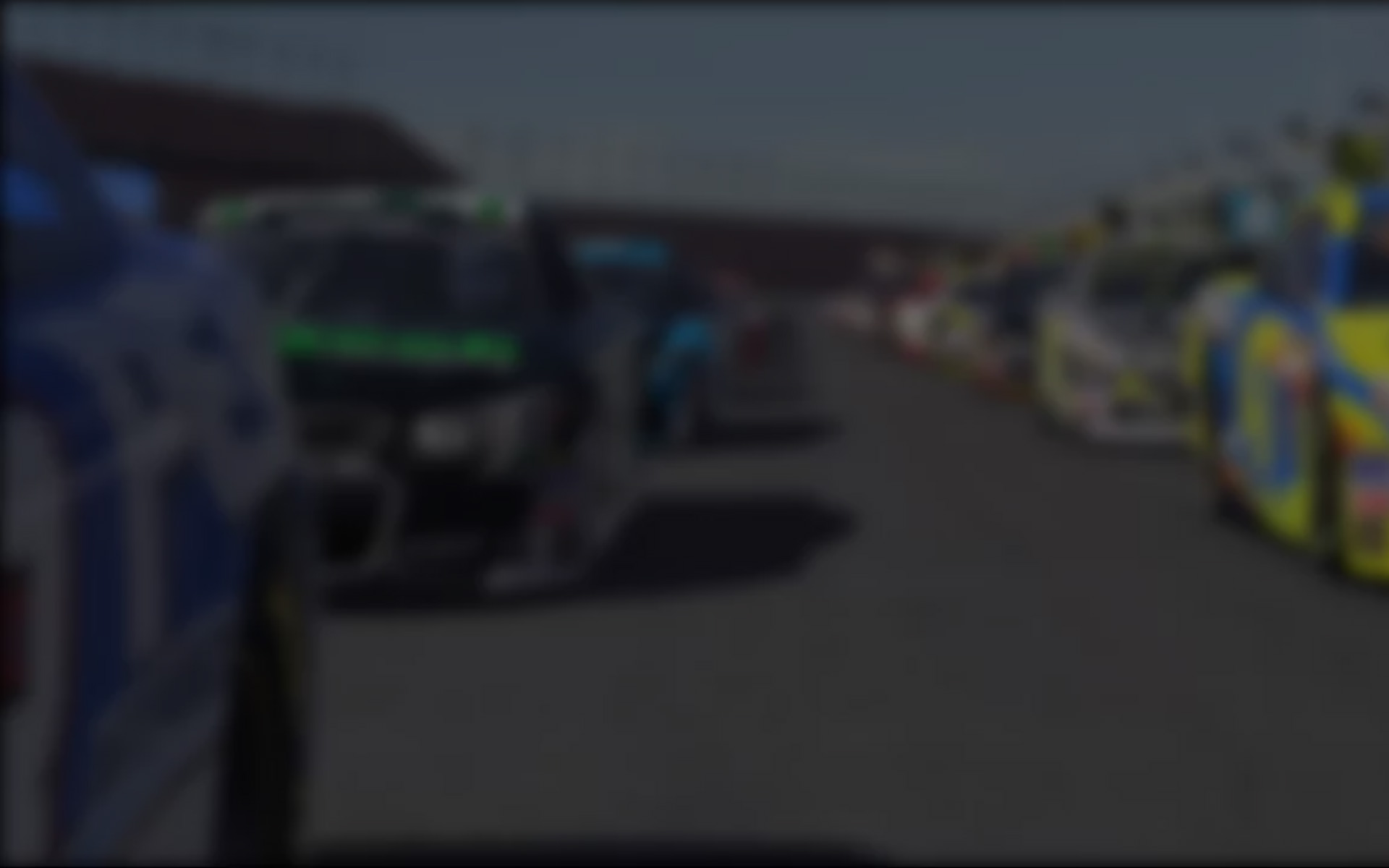
Fundamental Questions
October 9th, 2009 by DavidP
“Do you ever ask yourself fundamental questions?” Years after taking a class with Dr Y, one thing that sticks in my head is the memory of him posing that query in his distinctive Eastern European accent. It’s a thought-provoking question, one that still guides me through life’s difficult problems
I’m not thinking of split-second decisions like “Should I attempt a pass on the inside?” Rather, I’m thinking of the kind which challenge your most closely-held assumptions. For instance:
Are all my incidents with other drivers my fault?
Now that my advancement has plateaued, does it make more sense to learn how to improve the setup of a car to suit my driving style or put that time into continue improving my on-track skills?
Is iRacing the place where I seek a challenge or are there other things it does for me?

It IS possible to avoid getting involved in other drivers' incidents.
If I come up with answers in a few seconds, it is a wasted exercise. Genuine insight requires reflection and thought. The reason to ask these questions is to be your own Devil’s advocate and challenge your most fundamental understanding of how things work; that way you begin to understand yourself and your circumstances much more thoroughly. Thus are you better prepared to succeed.
For example:
Are all my incidents with other drivers my fault?
My instinctive answer is – clearly no! In some cases a driver spins right in front of me, and in other cases it was a warp, etc. You know all the examples where you could not avoid contact. But with our individual no-fault systems, there is nothing gained in sulking about it.
On reflection, I remember a racquetball league I was in where there was one guy who was roughly at my skill level while one of my friends was far on top of the pyramid. When I played against the guy on my skill level he argued every point, regardless of whether it was close or not. For the first couple of matches I argued back. Then I played my skilled friend and found that he immediately conceded all the close points. At first I was taken aback, and allowed myself to gain the points he deserved. Ultimately, we agreed to at least replay the point rather than accept a point which he thought could call into question a well-earned victory. Regardless, he always won the match.
Then , learning from his success, I adopted this philosophy and began to quickly concede every arguable point and focus on the next. Although it may have cost me a couple close games here and there, it totally changed how much I was enjoying the challenge. I began to be more successful as my frustration level dropped and I put more effort into strategy and positioning. It surprised my equal when I stopped arguing him all the time and instead was enjoying the match. I suppose it became still more vexing when I began winning consistently.
Not always, however.
Eventually I achieved my goal of getting to the top of the pyramid. I think a lot of the reason for my improvement stemmed from not arguing about trifling points even when I knew I was in the right. In the end it was hurting me .
I guess you would say when I look back at that experience my answer would be “it doesn’t matter if it was my fault or not. Forget it and move on.”
Applying my racquetball experience to iRacing.com, I observed how many of the drivers on the system had much lower incident rates than me, regardless of their iRating, and that they have the ability to string together many races without any incidents. Clearly they have more talent at avoiding the ‘unavoidable.’ Logically, even ‘unavoidable’ accidents must have involved a questionable decision on my part or I was putting myself in a position where the risk of having an incident was high.
I think another reason for my success back then was trying to avoid those ultra-close, disputable shots. At the same time, however, I also became more clever in positioning and setting myself up for an easier, less risky shot. And I think that same idea is a better strategy in avoiding/reducing incidents in on-line racing.
So my question to you is: do you ever ask yourself fundamental questions?
Thanks to P.J. Stergios, Jordan Erickson and Ray Bryden for the screen shots.















































